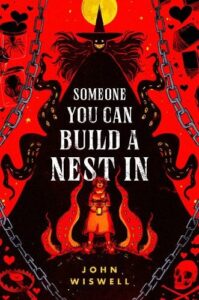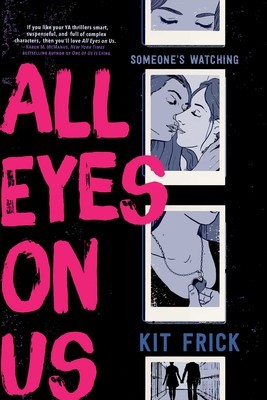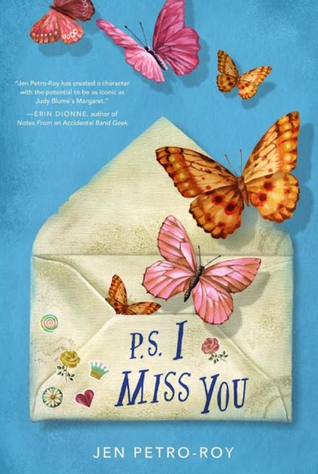Someone You Can Build a Nest In by John Wiswell is a gory monster love story about what it means to love someone and be loved. Shesheshen, Wiswell’s main character, is a shape-shifting monster who lives in a decrepit manor near a small town. The town both hates and fears her, but Shesheshen isn’t worried what anyone thinks of her—until a human woman, Homily, nurses her back to health after a close brush with a monster-slaying mission. For Shesheshen’s kind, the greatest form of love is laying your eggs in another being, but as she is immersed in Homily’s world (and her family’s quest to slay a certain familiar monster), she realizes this perhaps isn’t the best way to demonstrate her affection.
This book could certainly be classified as a coming-of-age novel, as Shesheshen comes to terms with the feelings of first love, familial grief, and the generally onerous task of being (or pretending to be) a human. But amid the bildungsroman and love story of it all, the book resounds with a deeply-felt understanding of what it is to be different.
Shesheshen is a monster through and through in the best way, and she is unapologetically gruesome as well as uncomprehending of human social norms. At the same time, she is a creature who, in the time-honored tradition of horror, functions aptly as a metaphor for both queerness and disability. Through it all, Shesheshen remains a fully fleshed-out character herself, her essence never getting lost in tropes or metaphor.
We see scenes through Shesheshen’s eyes, making even the most mundane activities seem fantastical and leading to lines like “They shrieked in what Shesheshen assumed was another of the consensual oral horrors that humans called music.” She sees the world in such a unique way, and her endearingly gory narration is a joy to read.
Shesheshen’s alienness in the world of humans makes her observations about Homily’s family and the way they treat her all the more poignant. Even though this is technically a coming-of-age for our main monster, her love interest evolves and matures just as much. The conversations between Homily and Shesheshen feel achingly true to life despite their context in fantastical situations. (Shesheshen tells Homily, “You can give too much,” to which she replies, “I’m sorry… So often, I don’t know what else to do other than give. It’s like I won’t exist if I don’t do something.” Oof.) The novel is full of lines that feel like a gut punch in the best possible way: “Do not try to prove you are generous by letting yourself be hurt” and “If you do not put down boundaries, your family will haunt any house we live in.”
Someone You Can Build a Nest In is one of the best examples I have read of why horror functions so well to portray deep emotions like grief and trauma but also love and acceptance. It isn’t afraid to shy away from the way that being truly known can feel gruesome at the same time that it is cathartic. The adventures of its main characters are rendered in strange and wonderful prose. This book has been pleasantly haunting me off-page ever since I finished—in the way only a great monster can.
Trigger warnings for gore, violence, injury, emotional abuse, family abuse
Emilia Ferrante is a book-lover and poet living in Paris and studying to get her Master’s degree. She is the co-host of Sapphink, a sapphic English-language book club, and loves crocheting, going on walks, and listening to the rain.



